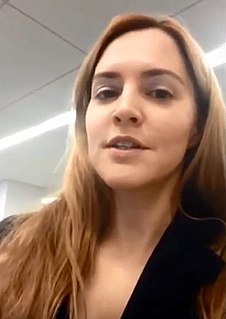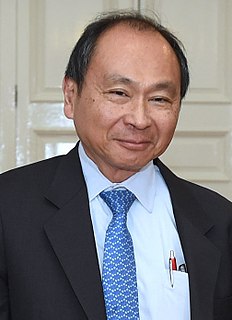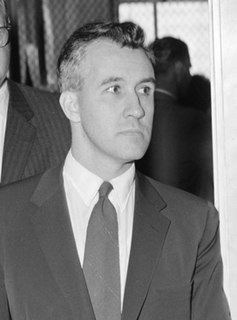A Quote by Ludwig von Mises
Economic knowledge necessarily leads to liberalism
Quote Topics
Related Quotes
The issue of religious liberty is absolutely critical. America was founded on three different types of liberty: political liberty, economic liberty, and religious and civil liberty. It's remarkable that, one-by-one, these strands of liberty are coming under fierce attack from the Left. And that's particularly ironic because "liberal" derives from a word which means "liberty," the free man as opposed to the slave. This liberalism which we're saddled with today isn't a real liberalism at all, but a gangster style of politics masquerading as liberalism.
The more people that understand and are made able to spot liberalism, and then the more people are able to associate liberalism with the problems in their lives, the political problems, the economic problems, the more people can be conditioned and educated to understand that liberalism is the problem, coupled with the ability to spot it, would be the fastest way to eradicate it. It would be really helpful if we had a Republican Party engaged in this.
Liberalism is unsustainable. When things go wrong in liberalism they pile more liberalism on top. Pretty good example of what's wrong with the US budget, US healthcare. Liberalism breaks it. Government breaks it. They pile more liberalism on top of it until it eventually implodes, like Obamacare is going to, or like Social Security is going to. All of these things, they're not sustainable, because liberalism isn't.
Liberalism should be found not striving to spread bureaucracy but striving to set bounds to it. True liberalism seeks all legitimate freedom first in the confident belief that without such freedom the pursuit of all other blessings and benefits is vain. That belief is the foundation of all American progress, political as well as economic.
What Asia's postwar economic miracle demonstrates is that
capitalism is a path toward economic development that is potentially
available to all countries. No underdeveloped country in the
Third World is disadvantaged simply because it began the growth
process later than Europe, nor are the established industrial powers
capable of blocking the development of a latecomer, provided
that country plays by the rules of economic liberalism.
Socialism needs to pull down wealth; liberalism seeks to raise up poverty. Socialism would destroy private interests, Liberalism would preserve [them] ... by reconciling them with public right. Socialism would kill enterprise; Liberalism would rescue enterprise from the trammels of privilege and preference. Socialism assails the preeminence of the individual; Liberalism seeks ... to build up a minimum standard for the mass. Socialism exalts the rule; Liberalism exalts the man. Socialism attacks capitalism; Liberalism attacks monopoly.
There are two kinds of liberalism. A liberalism which is always, subterraneously authoritative and paternalistic, on the side of one's good conscience. And then there is a liberalism which is more ethical than political; one would have to find another name for this. Something like a profound suspension of judgment.
In my estimation, there should always be a mixture of economic liberalism - which means small government, a great emphasis on markets - but also a certain degree of social conservatism, not to favor change unless that change is beneficial. So I describe myself as an economic liberal and a social conservative.



































